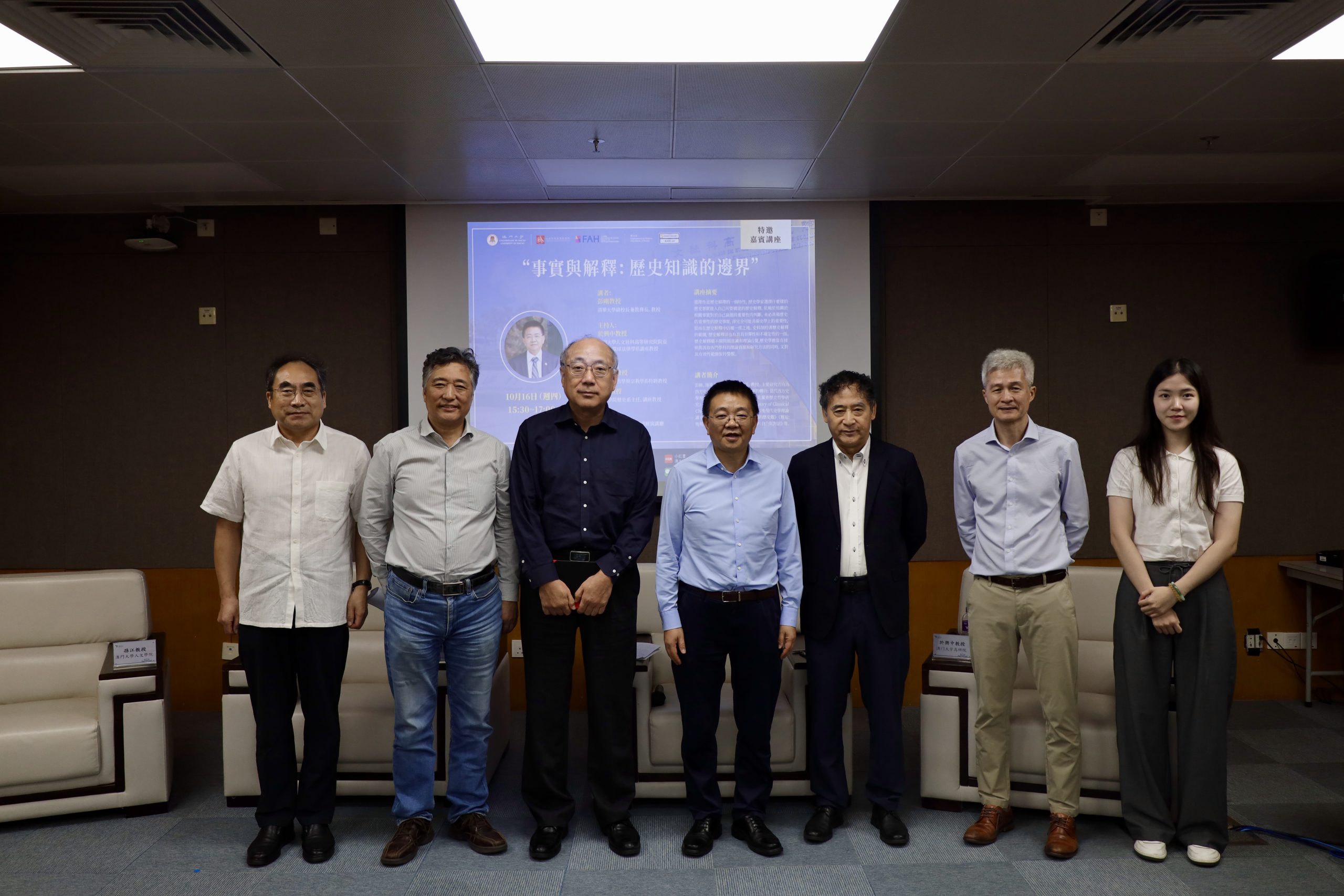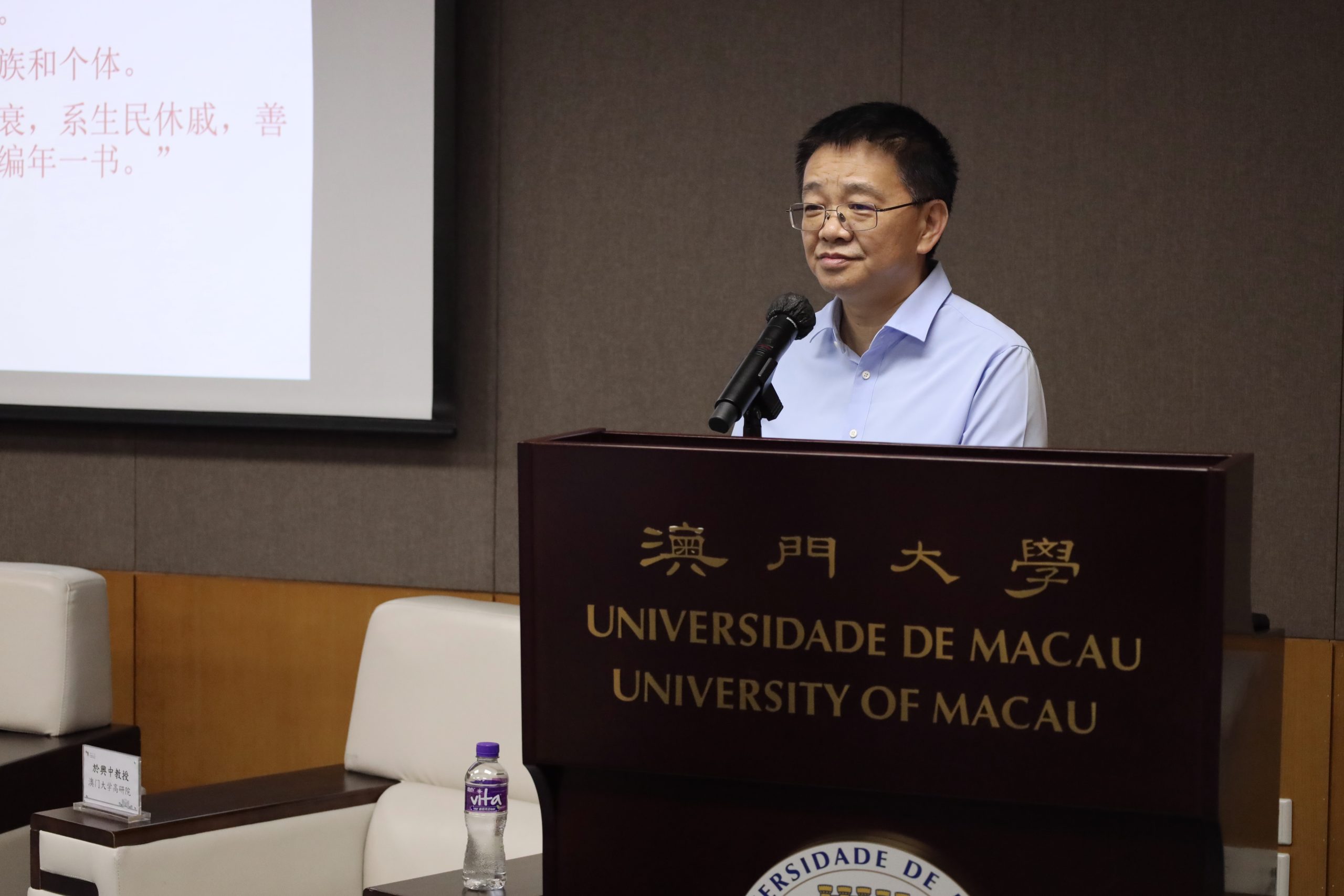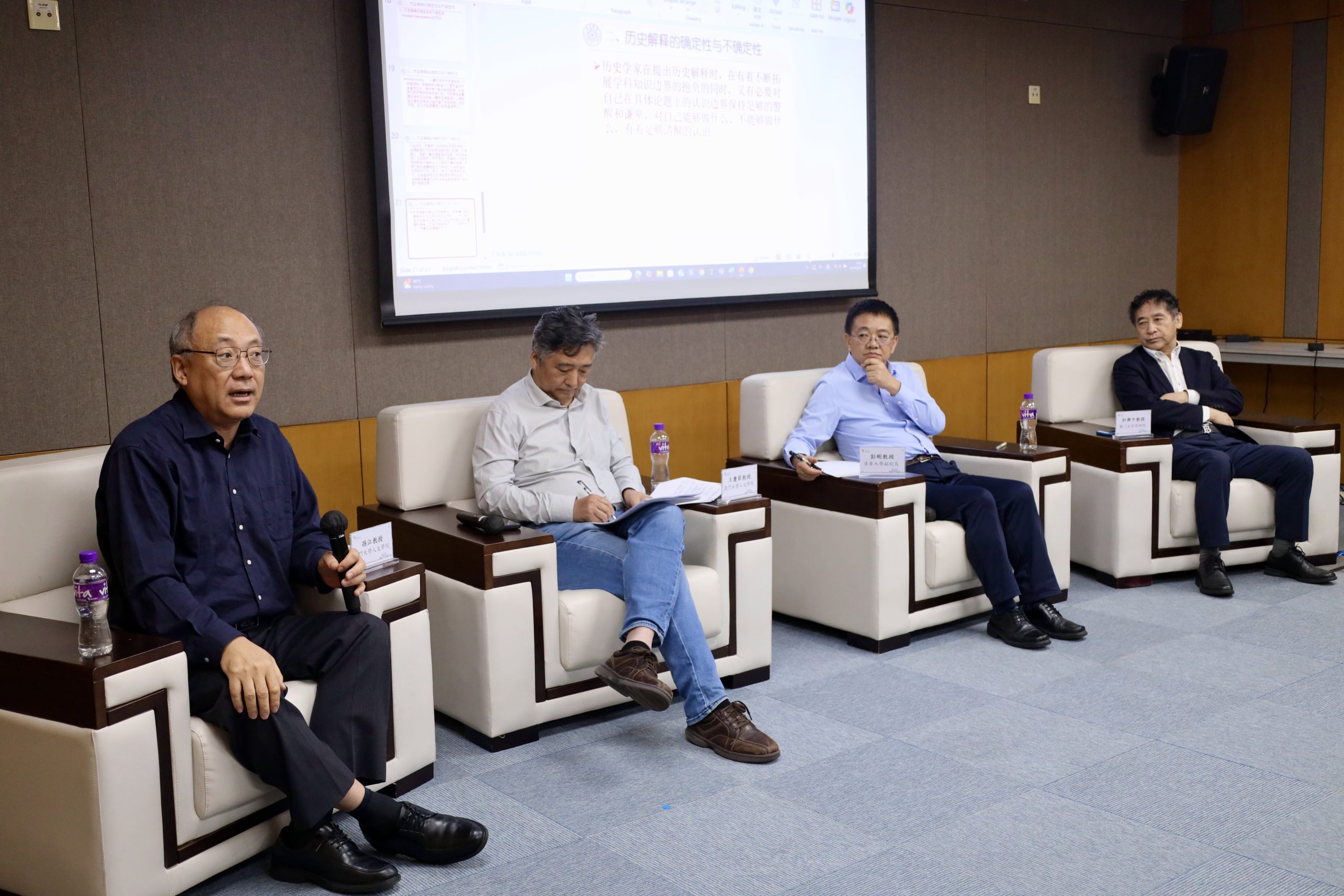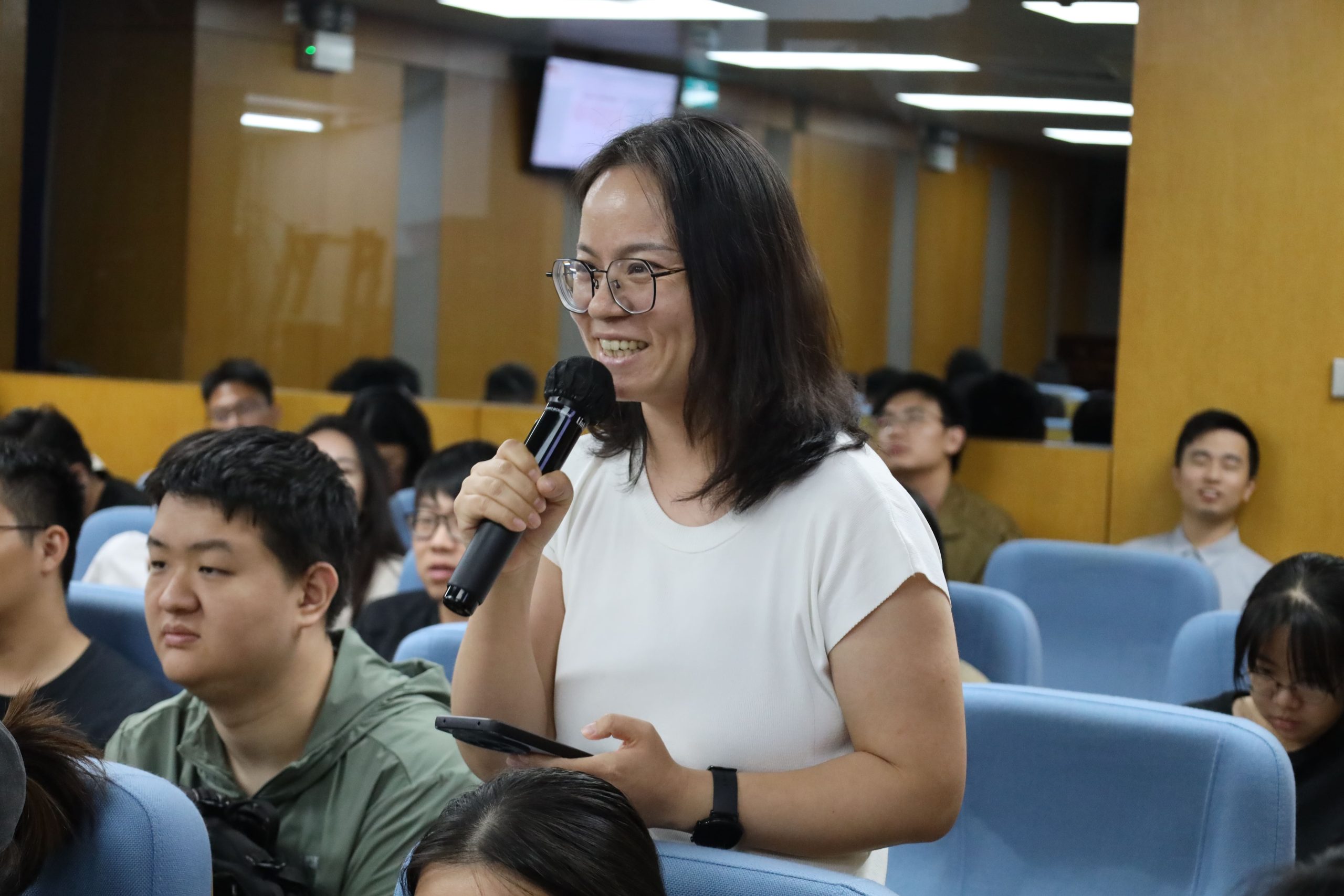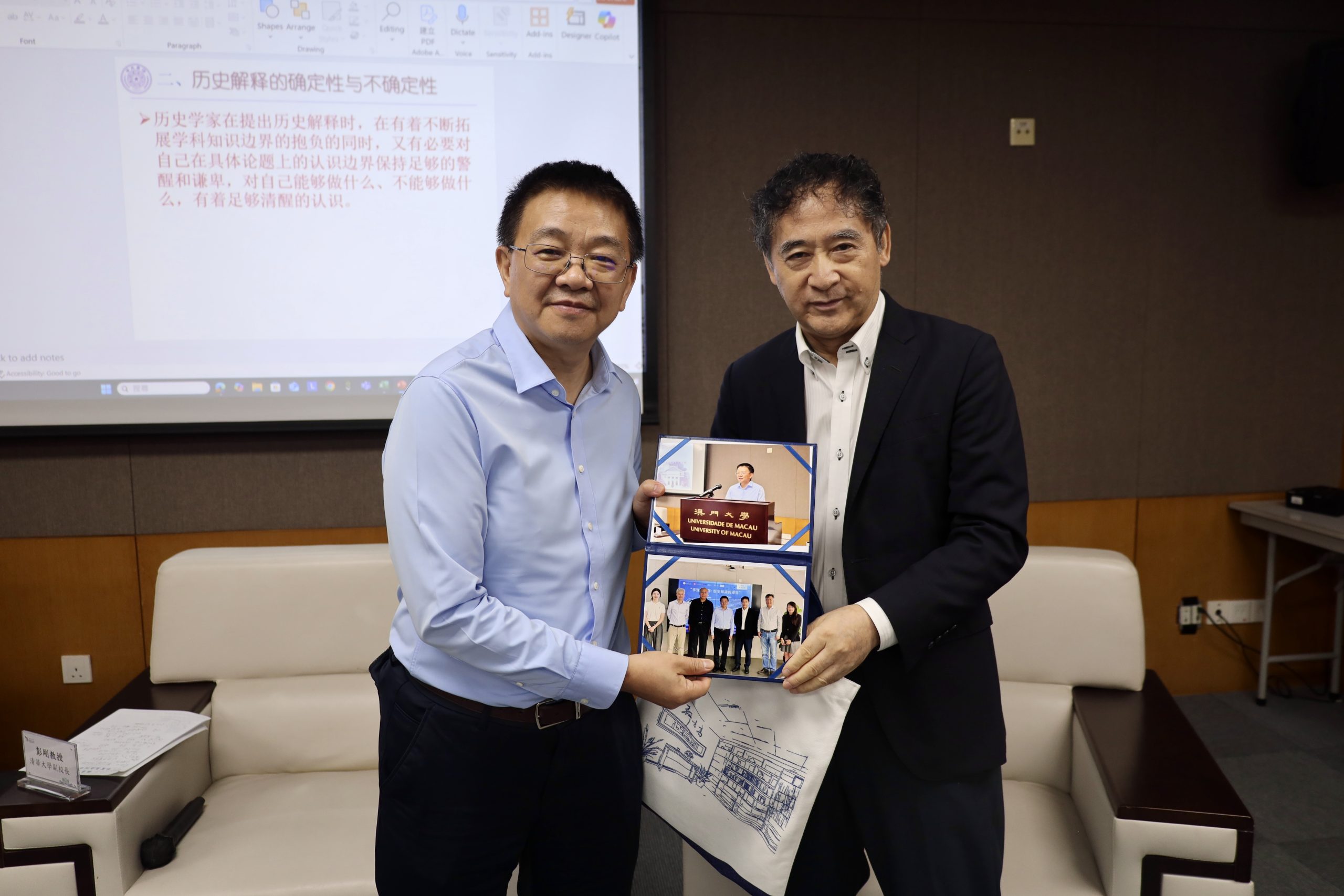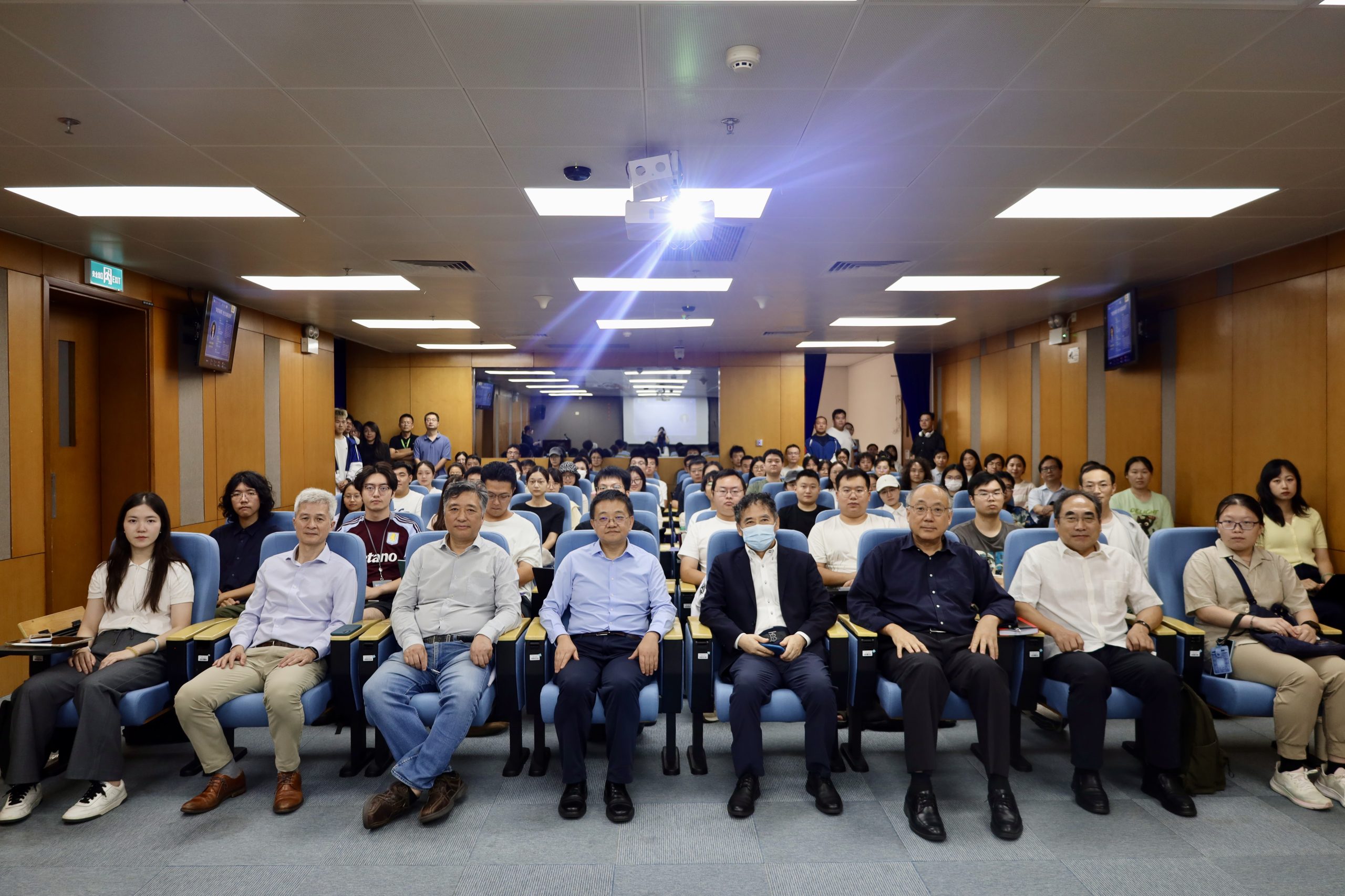【IAS】Professor Gang Peng Speaks in Distinguished Guest Lecture at IAS
【高研院】由彭剛教授主講之特邀嘉賓講座圓滿舉行

| The IAS promotional video has been launched! We cordially invite you to watch and help spread the word! | ||
|
English |
|
中文 |
|
On the occasion of the fifth anniversary of the Institute for Advanced Studies in Humanities and Social Sciences at the University of Macau, we would like to express our gratitude for your unwavering support to us. Your involvement and support have helped build a strong foundation for our interdisciplinary research platform and inspired us to keep moving forward. The IAS is excited to carry on our mission, rooted in Macau, by organizing high-quality academic activities that showcase the diversity of academic collaboration. |
||
由澳門大學人文社科高等研究院(IAS)主辦、人文學院歷史系協辦的特邀嘉賓講座“事實與解釋:歷史知識的邊界”,於2025年10月16日下午在澳門大學E1大學展館B層演講廳順利舉行。本次活動特邀清華大學副校長兼教務長彭剛教授主講,由澳門大學人文社科高等研究院院長、法學院環球法律學系講座教授於興中教授主持,並邀請人文學院哲學與宗教學系特聘教授王慶節教授及人文學院歷史系主任、講座教授孫江教授擔任與談人。
講座伊始,彭剛教授以“歷史事實如何進入歷史解釋”為切入點展開闡述。他指出,歷史學家對過去的詮釋,既受制於史料的有限性與主觀視角,也受到價值取向與研究問題的導引。彭教授認為,史家對“何種事實值得被納入歷史解釋”的判斷,本質上是一種關於“相關性”與“重要性”的再選擇。他進一步區分“歷史的重要性”與“史學的重要性”:前者關乎事件本身的影響,後者則體現於方法與思考的啟發,即使未具宏大歷史意義,仍可能具有深遠的學術價值。
隨後,彭教授以“歷史解釋的確定性與不確定性”為題,探討史料與主觀因素對歷史理解的限制。他指出,“不全知”並不等於“不可知”;有限的認識並不妨礙我們追求合理的歷史詮釋。他以“歷史是一棵倒下的樹”為喻,說明史家的觀察可以多元,不同詮釋共同構成了歷史理解的豐富性。彭教授強調,史料的缺失不應導致相對主義的放任,史學家應以謙遜與警醒之心,在有限的拼圖中重構過去的輪廓,同時亦需意識到自身認知的邊界,保持對“能知與不能知”的清醒自覺。
現場討論環節中,王慶節教授與孫江教授分別從哲學史與史學方法論的角度回應講題,探討“事實與解釋的界線”、“個人歷史與集體歷史重要性的比較”、“歷史知識的主體性”以及“詮釋過程中的權力效應”等核心問題。
現場反應熱烈、座無虛席,講座吸引近百位來自不同學科的師生參與。與會者踴躍提問,並就歷史知識的跨學科詮釋展開深入交流。高研院特邀嘉賓講座系列旨在邀請各高校傑出學者到訪澳門大學,促進校內外師生的學術對話與交流。此次講座為未來史學方法與知識哲學的研究提供了新的視角與啟示。
The Distinguished Guest Lecture “Facts and Interpretation: On the Boundaries of Historical Knowledge,” organized by the Institute of Advanced Studies in Humanities and Social Sciences (IAS) of the University of Macau and co-organized by the Department of History, Faculty of Arts and Humanities (FAH), was successfully held on the afternoon of 16 October 2025 at the Auditorium (Basement Floor) of the University Gallery (E1). The keynote speaker was Professor Gang Peng, Vice Rector and Provost of Tsinghua University. The lecture was moderated by Professor Xingzhong Yu, Director of IAS and Chair Professor in the Department of Global Legal Studies, Faculty of Law. Professor Qingjie Wang, Distinguished Professor in the Department of Philosophy and Religious Studies (FAH), and Professor Jiang Sun, Head and Chair Professor of the Department of History (FAH), served as discussants.
Opening his talk with the question “How do historical facts enter historical interpretation?”, Professor Peng argued that historians’ reconstructions of the past are shaped not only by the scarcity and perspectival nature of sources but also by value orientations and the research problems that guide inquiry. Decisions about which facts merit incorporation into an explanatory narrative, he suggested, constitute a second-order selection grounded in judgments of relevance and significance. He further distinguished between historical significance—the impact of events themselves—and historiographical significance—the methodological and conceptual innovations that may hold lasting scholarly value even when detached from grand historical events.
Turning to certainty and uncertainty in historical explanation, Professor Peng cautioned that not being all-knowing does not entail the unknowable. Finite knowledge still permits reasonable interpretation. Adopting the metaphor that “history is a fallen tree,” he illustrated how multiple vantage points yield complementary readings that together enrich understanding. Incomplete archives, he stressed, should not license relativism. Rather, historians must proceed with humility and vigilance, piecing together a credible contour of the past while remaining lucid about the limits of our own cognition—the boundary between what can and cannot be known.
In the discussion session, Professors Wang and Sun responded from the perspectives of the history of philosophy and historiographical methodology. The exchange examined core issues including the line between facts and interpretation, the comparative weight of personal versus collective histories, the subjectivity inherent in historical knowledge, and the power effects embedded in interpretive processes.
The event drew a full house of nearly one hundred participants from across disciplines and featured lively Q&A and cross-disciplinary dialogue on historical knowledge. The IAS Distinguished Guest Lecture series invites leading scholars to the University of Macau to foster academic conversation within and beyond campus. This lecture offered fresh perspectives for future work in historiographical methodology and the philosophy of knowledge.

